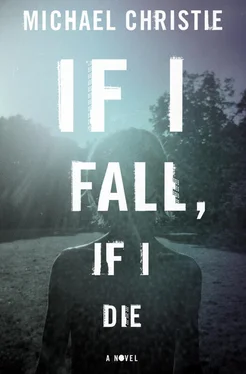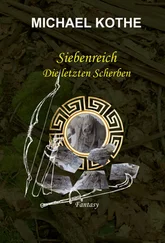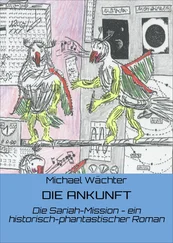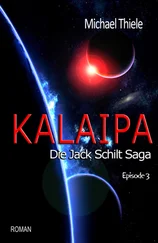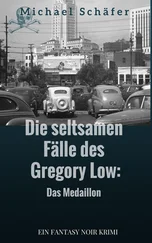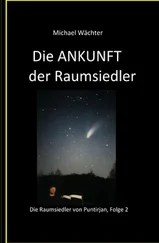By this time he and Iola remained childless, and fellow workers left bottles of rye and foul herbal mixtures on their steps, along with cryptic incantations regarding their combination. Iola wrote home to learn that sterility ran in her family and was mutely devastated.
Then one Saturday morning, while doing her shopping, Iola fell down some concrete steps outside Eaton’s and spent a month in traction with a snapped pelvis — her “wishbone,” she later called it. The story went that shortly after her release, Theodore took her on a weekend trip to Onion Lake, where that night in September, after a blistering hour in the sauna, Theodore carried Iola, who still could not bear her own weight, and set her in the frigid water. Iola then declared her intent to swim across the small lake and back. Upon her return, he waded out to meet her in the water.
After the twins arrived and Theodore returned to work, the men on his crew quipped: “Finally got the cork out, that right, Theodore?” But any linger of needling about his wife ceased eight years later when Iola, distracted by a crying boy who’d been left outside a tavern by his father, was struck by a right-turning delivery truck that had lost its footing on the ice.
Then, when the twins were sixteen, just a month after Charlie had rejected Theodore’s offer of a position at Pool 6, their father fainted — the elevator management claimed it was a bad heart; the union claimed it was overwork; Theodore’s close friends blamed the grain dust — and fell into the space between the wharf and a docked lakeboat he’d been trimming. The boat was to capacity with rye and sitting low in the water, so when the gentle waves eased the boat to the wall, Theodore, a man who had survived the North Atlantic, numerous burials in grain, and ten lives’ worth of peril, died in a smudge, like nothing at all.
The morning after the funeral, Charlie woke early, took up his father’s work clothes, cinching them with twine and rolling the cuffs. “There’s no other way to earn good money in this damn place,” he said, the wrathful resolve he’d gathered after Iola’s death now doubled. “We’ll put you through university first. Then I’ll follow.” Diane couldn’t bear to tell him then that, aside from a vague longing to be an illustrator or an artist of some sort, she had no inclination to attend university and pictured herself staying in Thunder Bay, with Whalen, perhaps working in his office. “Trust me, I know how this works,” Charlie said as he left that day. “If we have money, this place can’t keep us.” When he reported at Pool 6, his father’s men let him stay, purely out of uneasy pity.
After school Diane brought Charlie’s supper, as she had her father’s, staying long enough to watch him — an oiled bandanna over his nose and mouth like a train robber — descend into the dark grain bins, dangling from his safety line like human bait. She would watch the hole, counting softly to herself with held breath, until he emerged in a blast of coughing and, after that subsided, a whoop. Over the next few weeks, thick envelopes arrived from the universities to which Charlie had applied, but he dropped each in the trash, unopened.
Though everyone said her reckless brother excelled at the job, soon he was hacking late into the night, often to the point of retching, his face a withered sky-blue. Their doctor formally diagnosed his asthma and recommended another line of work, a recommendation that Charlie curtly returned to the doctor. Charlie soaked his bandanna with liquids of all kinds: soapy water, vinegar, herbal tinctures, and, for a time, gasoline. He took pills he bought from a grain inspector on the harbor named George Butler and drank three pots of strong coffee every day from his father’s thermos and got some relief.
A year blinked past. Diane continued to see Whalen at night, and after narrowly graduating from high school, she was secretly delighted to be denied by all the universities Charlie had urged her to apply to. Mostly because Charlie was so concerned about money, she took a job at a store near the lake called Pound’s that supplied work clothing and boots. She missed the elevator and nearly perished of boredom behind the long rough-planked counter, sick with worry about Charlie’s safety. “Remember,” she warned in their shared Theodore imitation, “the grain is both like water and like a wall, and you never know what it’s going to decide today.”
Often in the evening when the twins were walking home, committed drunks who’d collapsed in hedges or slumped against parked cars made I now pronounce you jabs under their breath. But Charlie had grown into a man still unable to abide ridicule or deflect insult, friendly or otherwise. He’d spit on the ground and square off with anyone, wrapping his legs around a big man while striking at his soft parts and riding him to the ground like a tranquilized animal. And not only those in the switching yard or on the walk home: each week new lakeboats arrived, yielding fresh crews — Norwegians, Danes, Finns, Brazilians, Americans, Portuguese — to misunderstand and swing blindly at. Twice Charlie returned home with his nose again grotesquely broken, nostrils nearly inverted, though it healed each time straight as a rifle sight. But things only worsened when he came of age and took up drinking in earnest. She’d often ask Whalen to pry the pint glass from his hand and drag him from the tavern to start his shift.
Then early one morning, Diane snuck home from a rare night with Whalen in a hotel to find a pantless man unknown to her slumped unconscious at their kitchen table, snoring obscenely, the ham sandwich he’d made uneaten before him, their good chopping knife loosely clutched in his hand. She put on her pajamas, then woke Charlie, who gently extracted the knife from the man’s hand and, so as not to damage the cupboards, scooped him up like a child, ferrying him onto the lawn, where he proceeded to beat him for some duration. “We’ll get a new house,” Charlie said afterwards, breathing hard. “Up the hill. Away from the taverns. Beyond stumbling distance.”
The following week, her brother began working nights with Whalen on the car dumper, something Whalen had arranged to help them both earn extra money. On payday Charlie set aside half the hefty wads he’d pull from his canvas coat, then would scamper off for grain alcohol — fueled weekends by the harbor. Between this and the late nights at the elevators, Charlie wasn’t sleeping at all, perhaps because of the pills he was taking for his asthma. He’d slink home days later, unshaven, thin, eyes red as wild strawberries, breathing in gasps with a gray pallor, his shoulders twisted with guilt. Always he fell mute when she questioned where he’d been.
But over time the money piled in her bureau, and soon they had the down payment for a house up the hill that backed the creek. Before they moved in, she arranged their meager things as best she could, and Charlie couldn’t stop shaking his head when he saw their new home, because it looked so good. But his contentment didn’t last. He started working night shifts on top of his regular days. With no time to spend his wages in taverns, Charlie was quickly paying down their house, with the intention of setting her up comfortably before he left for Queen’s University, where he’d already been accepted for admission the following year. “I’ll be a lawyer before you know it,” he said confidently.
That week she overheard some workers at Pound’s grumbling about what Whalen and Charlie were doing at night at Pool 6, how even if he was Theodore’s son, it wasn’t right, yet no one would explain the implication in detail.
When she asked Whalen about it one night in his car, he said they’d hired a crew to work nights when the elevators sat idle. “How come you’re making so much from it?” she asked, and he dragged a finger down her spine, setting her to shiver, and said, “It’s an Indian crew from a reserve up north. And they’re real good workers too. Charlie’s big idea was to pay them a third of normal wages, while telling my father the crew is white. We pocket the difference ourselves.”
Читать дальше
